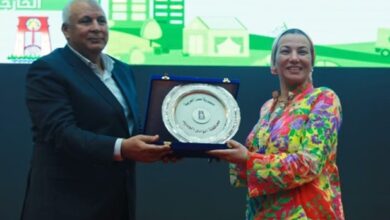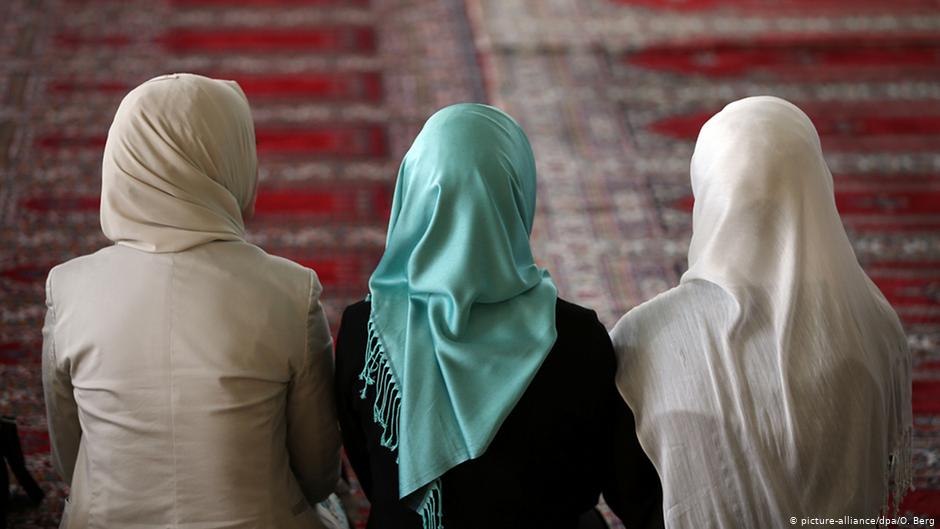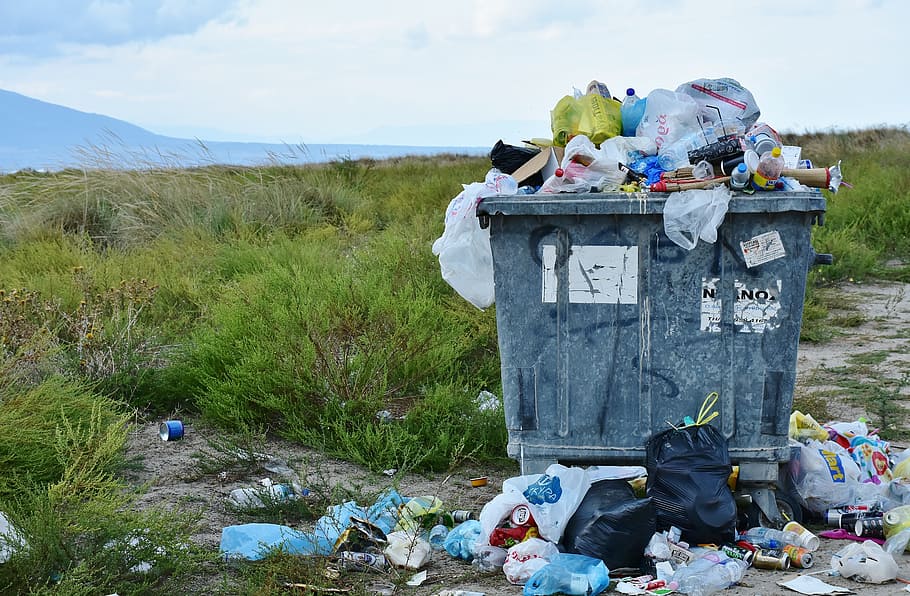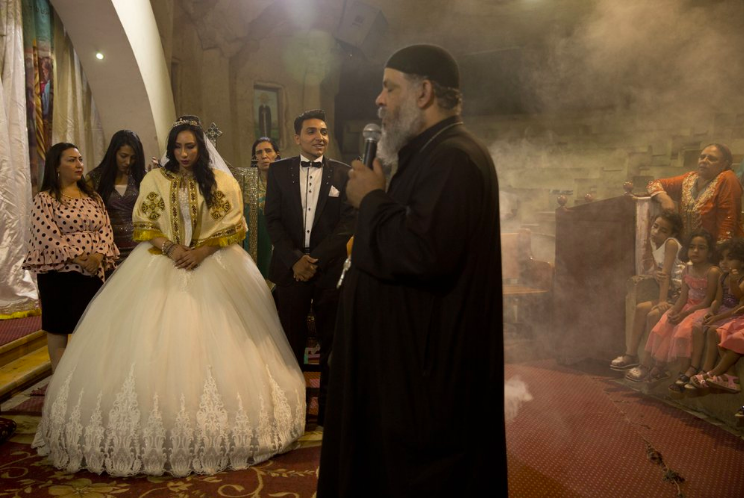Al-Masry Al-Youm met with Ali Gomaa, Grand Mufti of Egypt, as part of our Green Profile series, in which prominent figures discuss pressing environmental issues.
Al-Masry Al-Youm: How important is the environment within the Islamic doctrine? And in what way does Islam’s doctrine highlight man’s responsibility towards the environment?
Gomaa: In the Islamic worldview, acting as Allah's deputies on earth means that we bear the responsibility of both conserving the environment and developing it, since almighty Allah has subjugated the world to serve us, and make us content.
What subjugation means is that mankind has the right to enjoy the blessings of the earth and its resources. However, keeping in mind the Islamic worldview, we have no right to benefit from these blessings by exploiting that of others or future generations. We stand as masters over the environment, accountable by Allah the almighty and rewarded or punished accordingly. If we take good care of the environment, we will be rewarded with goodness, but if we abuse the environment and leave it to ruin, we will meet a frightful end.
As stated in the Quran, "Those who break their covenant with God after it has been confirmed, who sever the bonds that God has commanded to be joined, who spread corruption on the earth –those are the losers." (2:27)
Islamic law addresses the relationship between humans and the environment with the same binary view of rights and duties. Just as it has obligated us to conserve the environment and share it with others, it has also granted each of us the right to reside in a clean and beautiful area, where we can live in freedom and dignity.
Islamic law has comprehensively addressed the issue of environmental conservation with several legal rulings which tie the development of the world with the general framework of religion. Furthermore, Islamic law always seeks to promote the well-being of both the individual and the community while aiming to place the minimum burden on them.
Al-Masry Al-Youm: In 2007 there was a fatwa (Islamic ruling) issued on the burning of rice straw in that it is prohibited in accordance with the Sharia. What other fatwas have since been issued that also relate to man’s responsibility for the environment?
Gomaa: In general, any act that can cause harm to the environment is prohibited in Islam, and the burning of rice straw is one of these acts that causes harm to the environment and accordingly to mankind. In this particular fatwa, I requested government authorities to provide environmentally friendly alternatives to farmers to get rid of rice straw.
Al-Masry Al-Youm: Late last year Jordan hosted a conference, which you partook in, entitled “Environment and Islam,” organized by the Royal Aal al-Bayt Institute for Islamic Thought. Could you tell us what was the main outcome of this conference?
Gomaa: Actually, we discussed several issues throughout the conference, such as the role of the Quran, Hadith and Islamic values in giving solutions to environmental problems worldwide.
Our main aim was to clarify and analyze the significance of Islam in protecting the environment from man's abuse. In addition, the conference shed light on Islamic values which call for conserving the environment and its components for the sake of all humankind.
The conference was a good opportunity for more than a hundred Muslim scholars from 40 different countries to share and exchange opinions and ideas on environmental crises, which represent a worldwide problem.
In my speech, I focused on the importance of adding environmental issues as part of the educational curricula, to include environmental pollution, climate change and global warming, which represents more of a threat than war; that is why we should give more attention to environmental issues at hand.
It is also worth mentioning that we discussed 38 scholarly research projects and the discussions proved to be informative as well as engaging.
Al-Masry Al-Youm: In your opinion, what role remains to be played among religious scholars in order to give more weight to the environmental agenda?
Gomaa: The community of religious scholars can play a significant role in spreading Islamic ideas that call for saving the environment from corruption and protecting it. This can be done through Friday/Sunday religious sermons and by attending different environmental conferences and lectures.
Pollution and global warming pose an even greater threat than war, and the fight to preserve the environment could be the most positive way of bringing humanity together. Environment-related issues ought to be a significant component of religious teachings. It is the duty of all religious scholars to acquaint themselves with environmental crises we are facing.
Al-Masry Al-Youm: In your opinion, what do you take to be the most important changes that people need to adopt today in order to live in harmony with the environment again?
Gomaa: Actually, the relationship between humankind and the universe is originally one of harmony. Ever since humankind's descent to earth, their intellectual and social development has been intimately tied with the extent to which they have acclimated to their environment and how well they have utilized the tools of life. Humans have an obligation to respect and cultivate their environment, and under no circumstances may they abuse it.
Muslims in particular should approach almighty Allah's creatures with an attitude of equality and partnership in worshiping the same God. Believers exude love for what he has fashioned from the love they hold for him. They do not differentiate between smaller creatures or more impressive ones, because what matters to them is the all-powerful and all-wise creator.
Muslims even venerate and adore some inanimate objects because of their lofty station in almighty Allah's sight, such as the Quranic text, the Kaaba, and the grave of the Prophet Mohamed.
Al-Masry Al-Youm: Lastly, what is the current role of Egypt’s Dar al-Ifta in promoting an environmental consciousness within an Islamic view?
Gomaa: Dar al-Iftaa, besides its role in issuing fatwas, took part in international forums and conferences that tackle environmental issues, and is still planning for more cooperation regarding this issue. Recently, the issue of the environment has forced itself to the top of the list of international concerns, and the question of utilizing religious teachings to solve environmentally- related problems has become an urgent one.
Dar al-Ifta has taken measures to reduce carbon emissions of its facility, and it is our hope to declare Dar al-Ifta a carbon-neutral institution by the end of 2011. We are in the process of getting this certification.
Al-Masry Al-Youm: Thank you very much for your time.




